Bringing People Together to End Overdoses
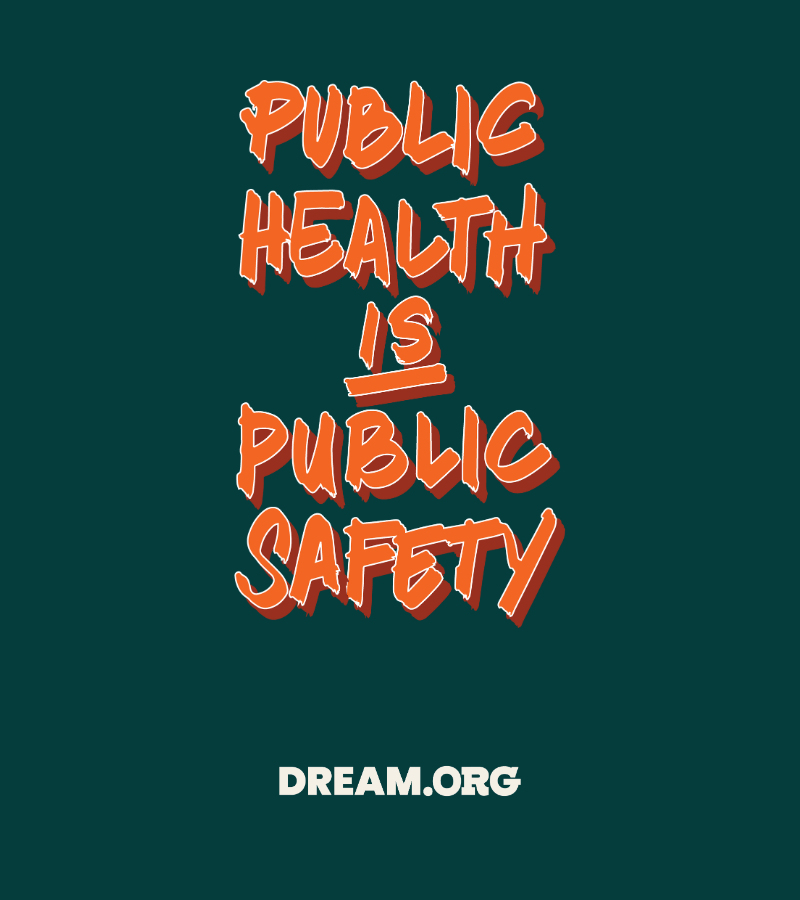
The overdose crisis affects us all, touching lives in every corner of our communities
The Public Health is Public Safety (PHIPS) campaign is dedicated to bringing people together, dismantling barriers, and fostering a culture of care and community over criminalization. Together, we aim to address the root causes of systemic challenges and create transformative change.
Our work spans state and federal advocacy. At the federal level, Dream.Org champions critical legislation, including the TEST Act, RESTORE Act, EQUAL Act, Clean Slate Act, Reentry Act, and Due Process Continuity of Care Act.
At Dream.Org, we want to leverage our national organizing network and experience with successfully passing legislation in both red and blue states to find common ground solutions. We are ensuring that public health policies are long lasting and beneficial to the communities most impacted by the overdose crisis, no matter which political party is in power.
We focus on impactful work in states like Kentucky, Arkansas, Wisconsin, New Mexico, and Arizona. Our priorities include:
- Strengthening Good Samaritan laws to save lives.
- Expanding Medicaid access for returning community members and improving access to medications for opioid use disorders.
- Our efforts extend further, encompassing the expansion of Medications for Opioid Use Disorder (MOUD) and advancing equitable policies to address the overdose crisis. Together, we’re building a future rooted in care, equity, and sustainable solutions.
Our goal is to end the cycle of mass incarceration for those who need support and resources, not punishment. Together, we can create a path toward a healthier, safer future for everyone.
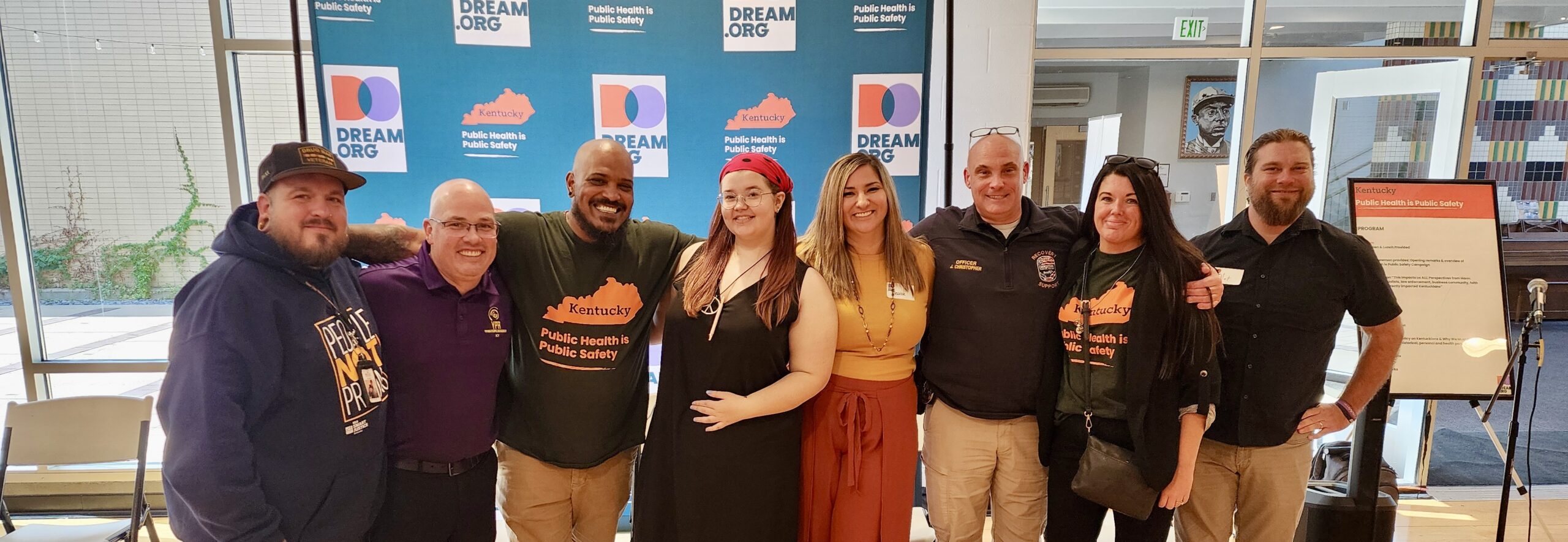
Provisional data from CDC’s National Center for Health Statistics indicates there were an estimated 107,543 drug overdose deaths in the United States during 2023. Overdose rates amongst Black, Indigenous, and Latinx communities are rapidly increasing.
Overdose deaths continue to devastate communities nationwide, leaving many grappling with loss and searching for ways to make a difference.
This is a collective issue that impacts us all, sign up to share your story.
4 facts about overdose & jails:
- 1 in 5 people are incarcerated due to a drug offense.
- People that are recently incarcerated are 27 times more likely to die from overdose within two weeks of being released.
- More than 50% of individuals taking medication for mental health conditions did not receive their medication while incarcerated.
- Of the estimated 43.7 million people needing substance use disorder treatment in 2012, only 3 million (6.8%) received treatment at a specialty facility & only 4.1 million (9.4%) received any treatment at all.
Our educational trainings tackle issues related to the overdose crisis and its far-reaching impact on our lives. This crisis cuts across race, class, geography, and political ideology, so we’re building a coalition that looks like America. Our calls bring together a diverse range of stakeholders, including public health professionals, harm reduction advocates, law enforcement, legal experts, community leaders, family members of those affected by overdose, and people with lived experience of substance use and incarceration.
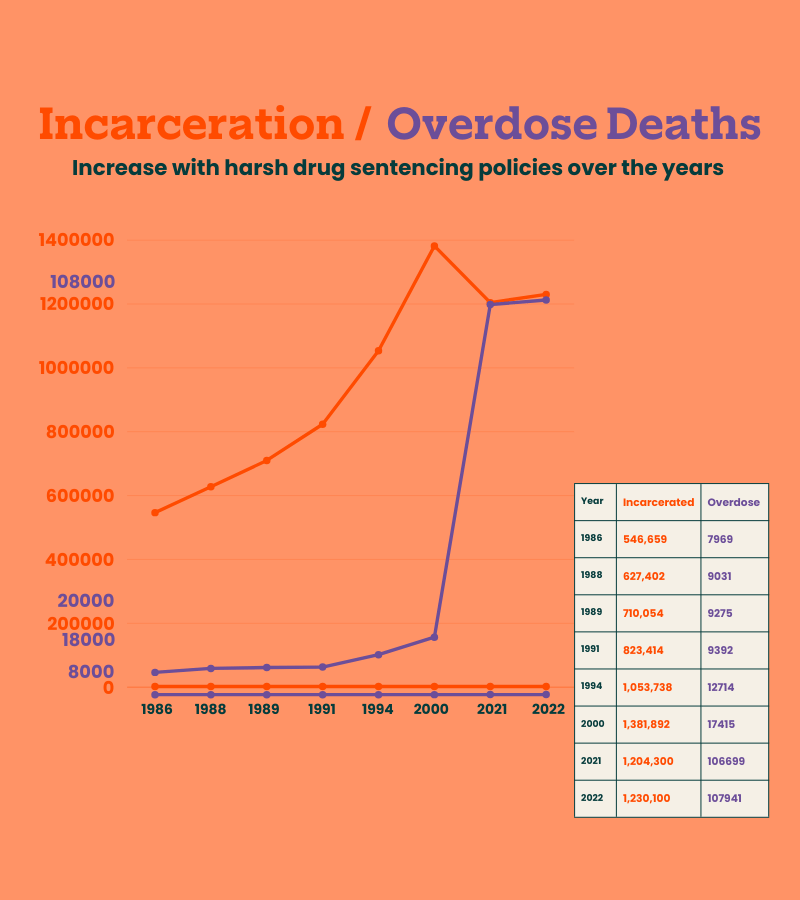

In Arizona we are building a coalition with community groups to advocate for better healthcare for incarcerated individuals. This advocacy includes pushing for access to a 1115 Reentry Waiver for incarcerated individuals who are returning to the community in Arizona. We are committed to expanding substance use disorder resources for both those currently incarcerated and those returning to the community. Additionally, we will focus on raising awareness and expanding access to life-saving medications for opioid use disorders, such as Methadone, to support recovery and reduce overdose deaths.

In Arkansas, we’re starting to collaborate with community groups across the state to host Public Health is Public Safety events that bring diverse groups together to discuss solutions for preventing overdose and building stronger, safer communities. We are excited to work with LaChandra Moore, our Arkansas Health & Justice Ambassador and a vital member of the Empathy Network. As an Ambassador, LaChandra will supportDream.Org’s PHIPS initiative by organizing teams to drive transformative health and justice outcomes in Arkansas. In her role, LaChandra serves as a trusted advocate and mobilizer, using her leadership to bridge the critical gaps between public health, public safety, and community organizing.

In coalition with a diverse group of allies, we are working to pass a Clean Slate bill that would automate the expungement process, offering a fresh start to hundreds of thousands of Kentuckians by clearing their past criminal records and providing them with a second chance. Additionally, we support legislation aimed at keeping families together by offering alternative sentences for primary caregivers. We are also backing a bill that promotes greater transparency and accountability in the collection of fines and fees. Our efforts extend to the 1115 Reentry Medicaid Waiver, which would grant incarcerated individuals in Kentucky access to Medicaid, ensuring that those reentering society have access to critical substance use disorder treatment, case management, and other essential healthcare services.

Emilee Shell serves as our Mississippi Health & Justice Ambassador, playing a pivotal role within the Empathy Network. Emileehe works closely with Dream.Org’s PHIPS initiative and leads organizing teams to drive transformative health and justice outcomes across the state. As an Ambassador, Emilee is a trusted advocate and mobilizer, using her leadership to bridge the critical gaps between public health, public safety, and community organizing.

Sheena Eastburn serves as our Missouri Health & Justice Ambassador, playing an essential role within the Empathy Network. Sheena works closely with Dream.Org’s PHIPS initiative and leads organizing teams to advance transformative health and justice outcomes in the state. As an Ambassador, Sheena is a trusted advocate and mobilizer, utilizing her leadership to bridge the critical gaps between public health, public safety, and community organizing.
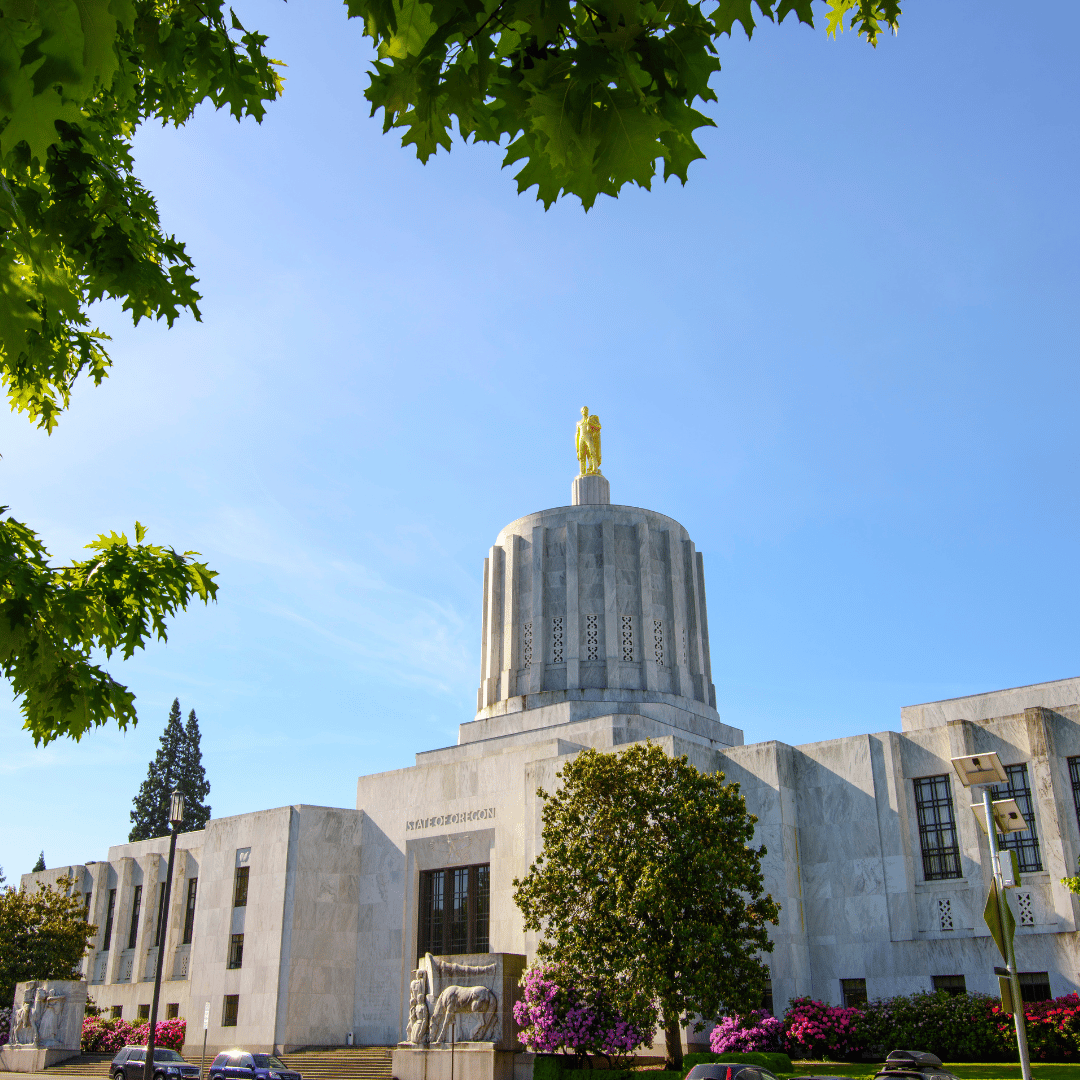
Sandra Chotia serves as our Oregon Health & Justice Ambassador, playing a key role within the Empathy Network. Sandra works closely with Dream.Org’s PHIPS initiative and leads organizing teams to drive transformative health and justice outcomes in Oregon. As an Ambassador, Sandra is a trusted advocate and mobilizer, using her leadership to bridge the critical gaps between public health, public safety, and community organizing.

In Wisconsin we are working on a Good Samaritan bill that will save lives. We are also building a coalition with community groups to advocate for improved healthcare for incarcerated individuals. This advocacy includes pushing for the implementation of a 1115 Reentry Waiver to ensure incarcerated individuals who are returning to the community have access to Medicaid. We are committed to expanding substance use disorder resources for both those currently incarcerated and those returning to the community. Additionally, we will focus on raising awareness and increasing access to life-saving medications for opioid use disorders, such as Methadone, to help support recovery and reduce overdose deaths.
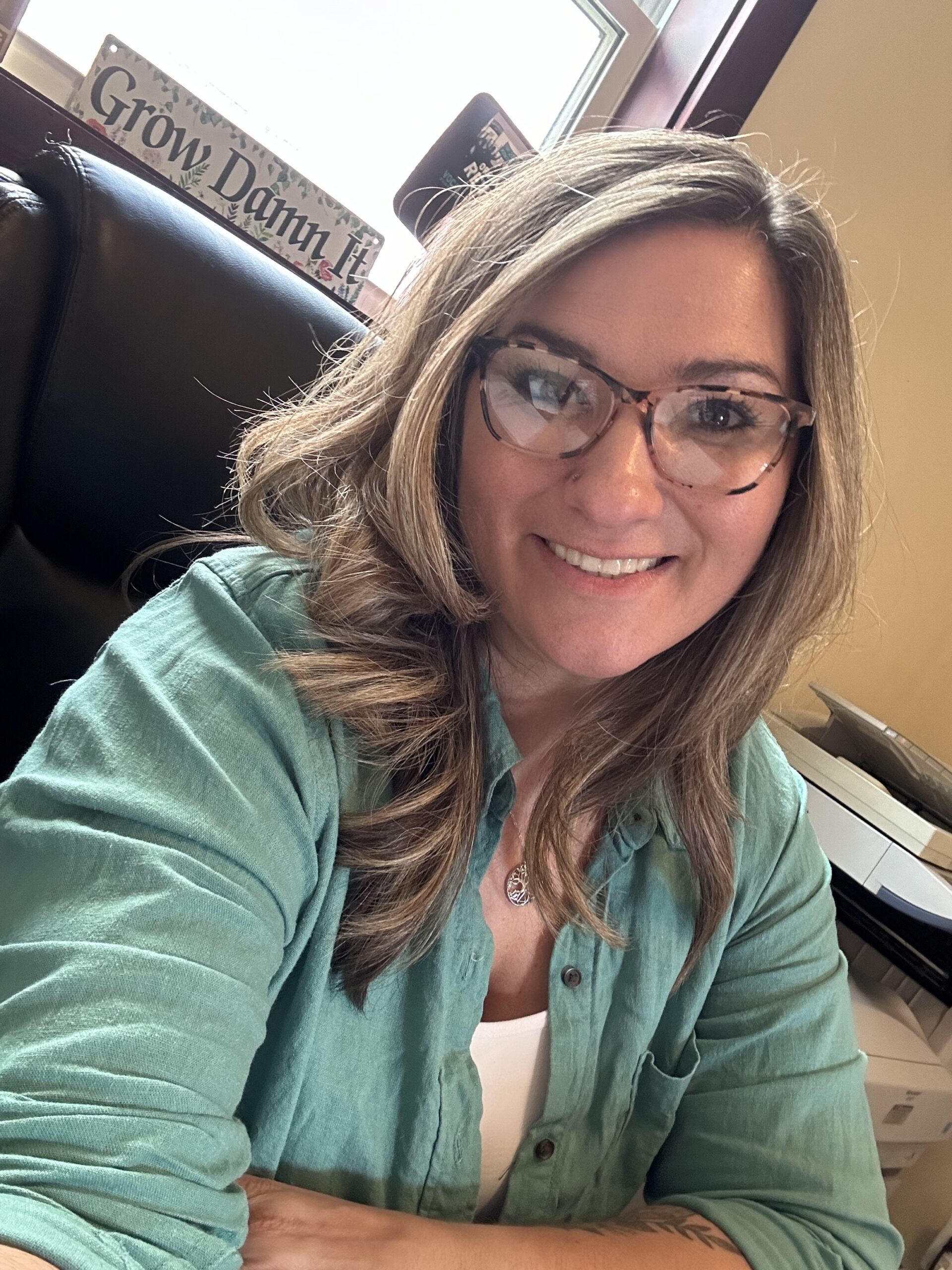
Content: Jessica Nelson, a Lexington, Kentucky resident and peer support advocate, has lived through a 20-year battle with opioid use disorder. Her journey has been one of recovery, redemption, and relentless advocacy for systemic change in how society approaches addiction.
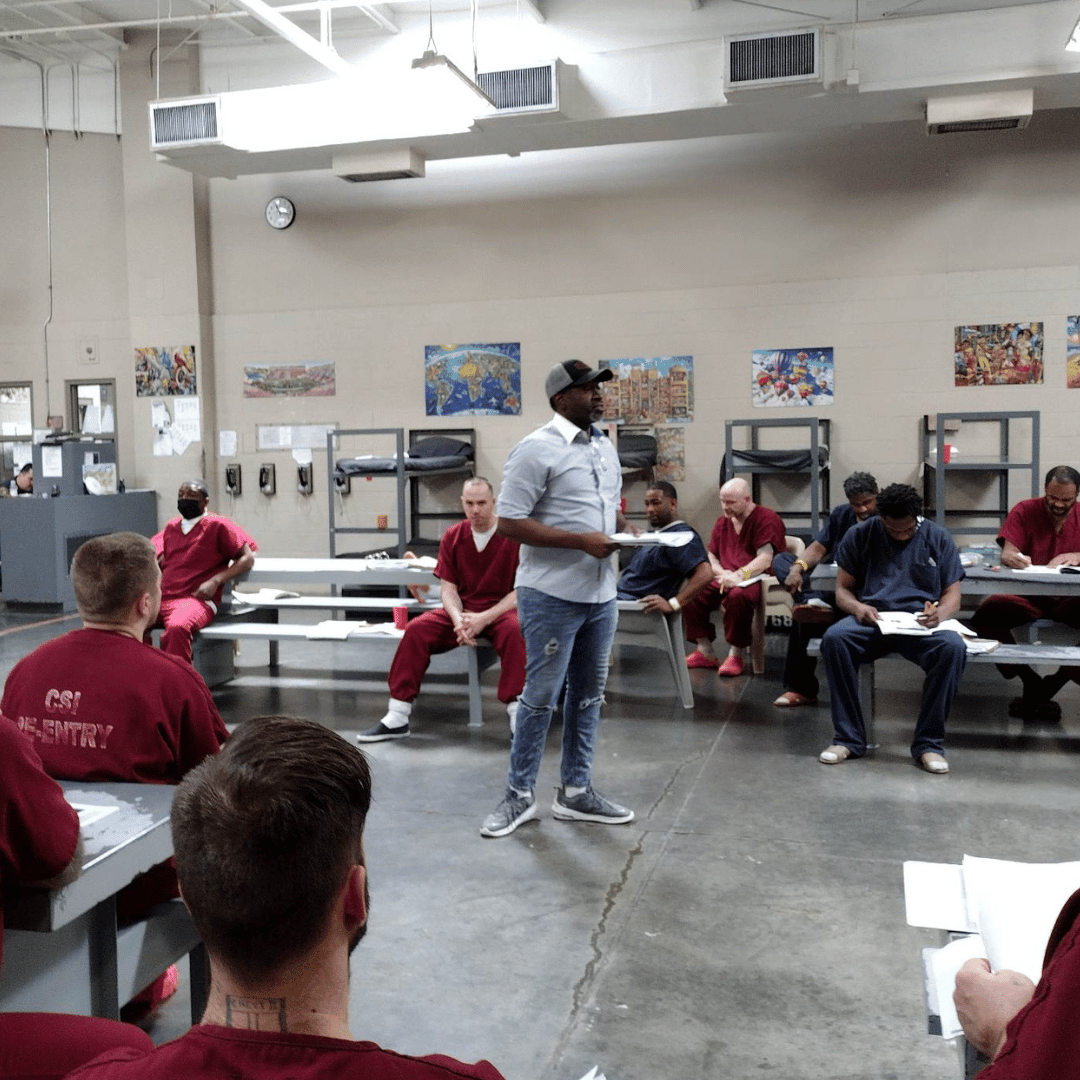
Brian Ricks spent numerous years behind bars and is currently in long term recovery from substance abuse living with mental health challenges. However, those experiences don’t define him. Today, he works as an Arkansas State Certified Peer Recovery Support Specialist (PRSS), helping those who are struggling with substance use or mental health issues, especially those just out of prison.

Overdose Awareness Day on August 31st is a time to remember those we have lost, but as a mother who lost two children to overdose, there isn't a day that LaChandra doesn't remember. Though her exposure to drugs began long before, losing her children to fentanyl four months apart shattered her world and ignited her advocacy journey.
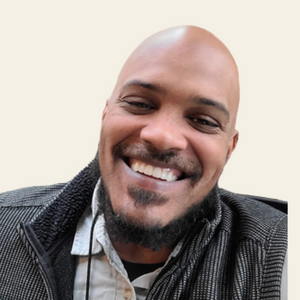
After battling with substance abuse disorder for 24 years and being entangled in the “justice” system since the age of thirteen, the work John does as Dream.Org’s Kentucky Senior Campaign Organizer is deeply meaningful and has provided a pathway for him to turn his personal pain into purpose.
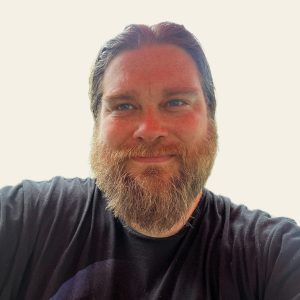
Mat Hazelberg is a drug user activist and harm reductionist. He has worked primarily with people who inject drugs, providing health services since 2006. In 2023, he co-founded PULSE as a platform to involve and amplify the voices of Wisconsinites who use drugs, hosting discussions with them about the issues that surround them.



